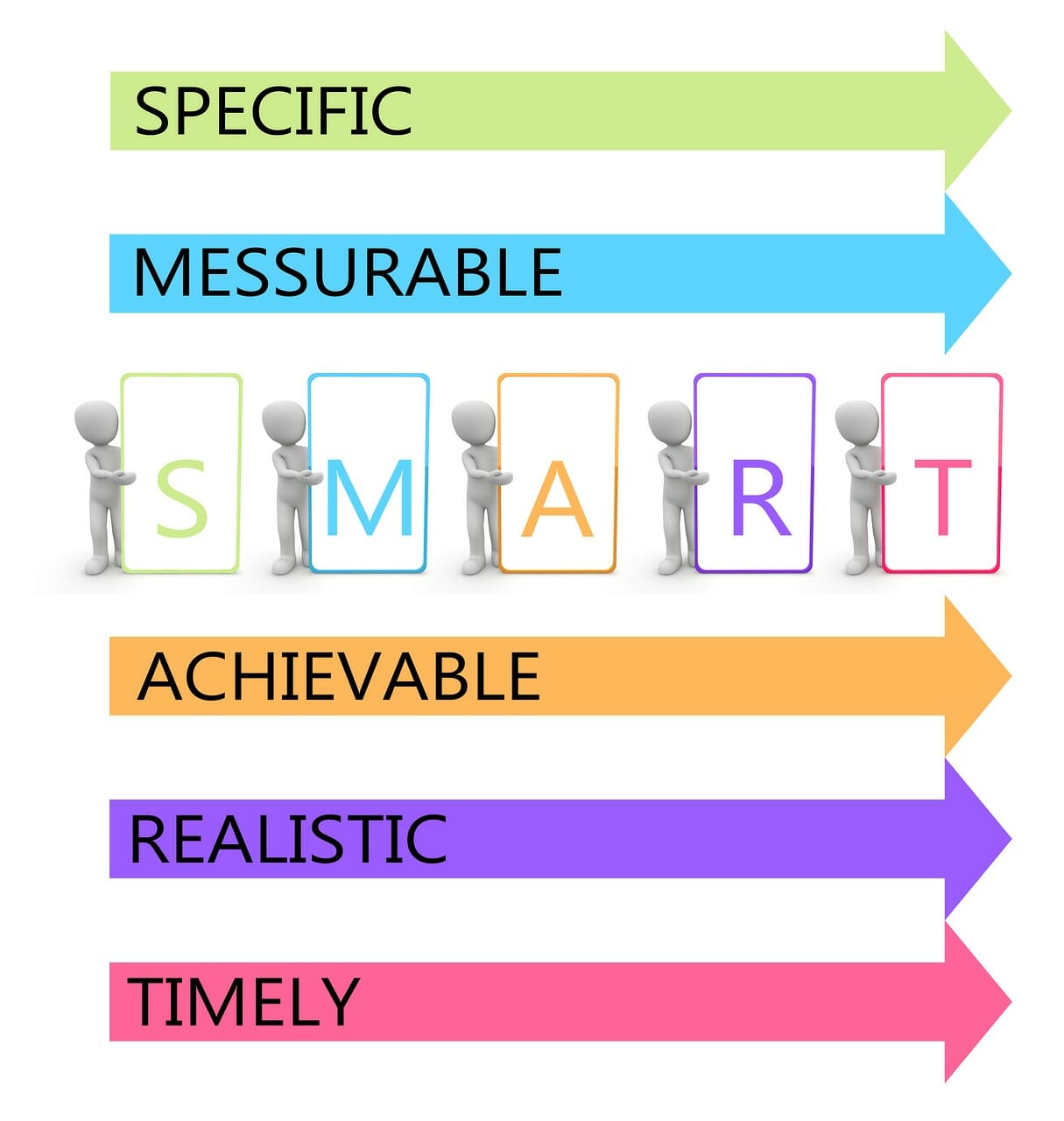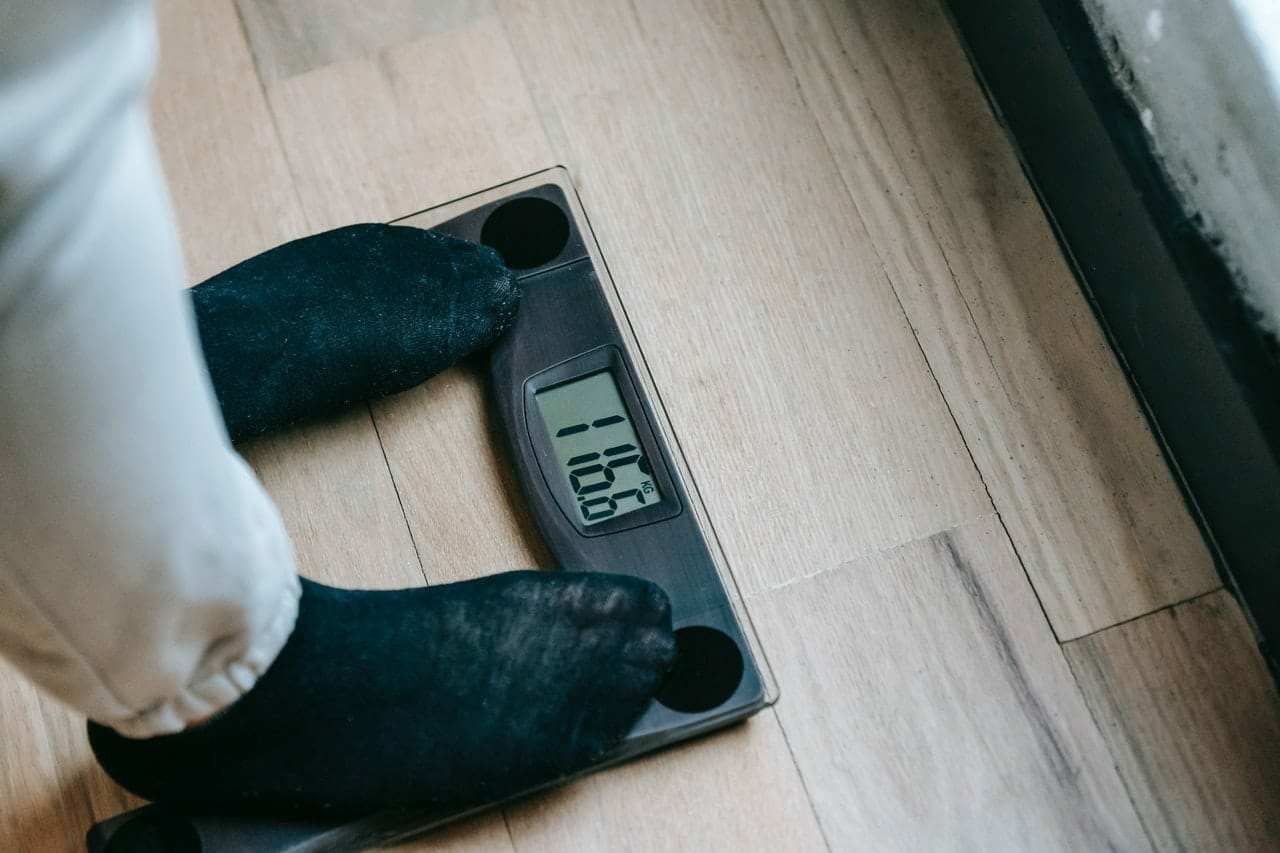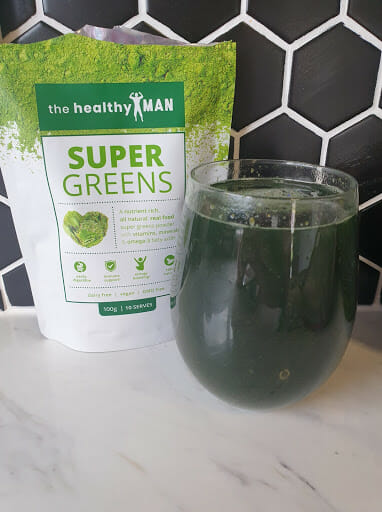Free shipping on orders over $99
Goal setting: How to do it and succeed
Goal setting can be a really helpful way for you to have something to aim for when you’re starting your new health journey. Whether your goal is to lose weight, get fit or run a marathon, having a goal will help you plan to help you achieve your goals and one great way to help you achieve your goals is by setting SMART goals. You could even plan a reward once you achieve your goals.
You can skip ahead to read what you need help with most:
- Goal setting: How to set realistic goals plus tips to help you achieve them
- Setting SMART Goals For Success
- Here’s how to find the motivation to achieve your goals
- 5 scientifically proven ways to make sure you achieve your goals to lose weight

Goal setting: How to set realistic goals plus tips to help you achieve them
If you’re looking at goal setting to help you lose weight and get healthy you may be considering something along the lines of:
“I promise I will get to my goal weight by cutting out all vices, eating healthier and exercising more.”
Sounds big! Ambitious! BUT before you get caught up in the process of trying to carry out these goals, let’s look at the importance of setting realistic goals.
Take it slow and review
Take one day at a time when you’re trying to lose weight as rushing into these goals without a plan may backfire.
Before you goal setting, look at your day on a plate and track your exercise and mindset during the day.
You may find your downfall is a lack of time, motivation or opportunity to exercise. Perhaps you’re under pressure at work or stressed out at home and find your diet slips in certain situations.
Make sure you commit to writing down the positives and negatives of your day so you can visually pinpoint what is stopping you from losing weight and increasing motivation or energy.
Changing or coping with the obstacles you encounter day-to-day will help set the foundations for your goal setting.
Goal setting
Ok, you’ve identified some obstacles, now it’s time to set those goals! Regardless of what your obstacles or goals are, be aware that setting incremental small, meaningful goals instead of one big overwhelming goal, will offer you the best chance of success.
This is because achieving your goals naturally spurs you on to achieve yet more goals, as the sense of accomplishment gives you the motivation to continue.
Break it down into smaller steps
If weight loss is your goal, break it up into increments that you are comfortable with. For example, 25kgs means losing around 1kg a week over six months or around 1.5 kgs over four months. That’s as heavy as a bag of rice, per week!
Setting these smaller goals will mean achieving your goals is more attainable and will give you the confidence and push you need, then if you concentrated on the (overwhelming) total of 25kgs.
Making sure your goals are realistic is crucial to setting yourself up for success.
By setting unrealistic goals, you set yourself up for failure which sees you under pressure and overwhelmed at achieving a mammoth task.
Here are some more quick tips for success in achieving your goals
- Keep a set of runners and workout gear in your car or by the door for when the opportunity arises.
- Get a monthly planner up on your wall and make notes of kids schedules or deadlines due and work your exercise routine around these.
- Get into meal prep: If you haven’t got the time or space, make sure you’ve made and frozen healthy options in anticipation of vulnerable moments when you reach for the unhealthy stuff.
- Lower your expectations, results take time which comes with consistency.
- Sensibly reward yourself as you meet your fitness goals.
- Publicly commit to your goal or spend money on achieving it to hold you accountable.
- Team up with a workout buddy; you’ll find it’s harder to skip working out if you know someone is depending on you.
- Even when you feel unmotivated, a little is better than nothing so don’t stop eating right and working out. It will soon become a habit and when you see and feel results, you’ll wonder why you didn’t do it in the first place!
Setting SMART Goals For Success

What does success mean for you?
It could mean achieving a goal such as losing weight, getting fitter, having a better relationship, or finding more ‘me’ time.
Success can come in many different forms. By setting goals for ourselves we can measure whether we have achieved them or not.
But if your goals aren’t followed up with a plan of attack, they remain as dreams that may never come to fruition this is where SMART goals can help.
Take a look at the goals listed in the first line of this article. Notice anything?
They are unspecific and unmeasurable. If when you’re goal setting you say something like ‘getting fitter’ how will you know when you have achieved it?
If you say you want to ‘lose weight’, how will you know when to pat yourself on the back for doing it?
For this reason, there is a popular acronym for goal setting –SMART. SMART goals are a common goal-setting initiative that often helps you achieve your goals.
So what are SMART goals and how do you go about SMART goal setting? This is how it works.
Your goal needs to be:
- Specific
- Measurable
- Attainable
- Realistic
- Time-Frame
When you SMART goal setting you need to ensure each goal you set includes all of these aspects. To make sure you’re setting SMART goals that help you achieve your goals let’s look at each of these more closely.
Specific
Being specific means that your goal is well articulated and clearly defined – if you don’t really know what you want then you aren’t likely to be motivated to achieve it. It’s important to be specific about not only the outcome you want to achieve but also the behaviour based changes that are needed to get you there.
In addition to being specific, it is important to be clear about why it is important for you to achieve your goal. Ensuring your goal is worthwhile will increase your motivation and help you succeed in achieving it.
For instance, it is not specific to say, ‘I want to lose weight,’ but it is specific to say ‘I want to lose 10kg by improving my diet and increasing my exercise.’
In order for this goal to be motivating, however, it is vital that you think very deeply about why this is important for you. Move past the superficial reasons and hone in on what is really driving what you want to achieve.
Measurable
Making sure you have some aspect of your goal that can be measured or quantified is also important, i.e. 10kg. This allows you to track your progress by taking incremental measurements along the way (not too regularly) and gives you a ‘tangible’ outcome to celebrate.
If your goal setting includes a weight loss goal you can either measure this by the kilos lost, centimetres lost on your waist or even just by noting the changes in your clothes sizing.
Attainable
Make sure it is possible to achieve. If you set a SMART goal that you have no hope of achieving, you will set yourself up for disappointment and frustration that will diminish your motivation and erode your confidence.
This is a classic outcome of the diet mindset, where an unachievable goal is set (i.e. I will NEVER eat chocolate again), which inevitably results in feelings of failure, self-blame and demoralisation.
Setting short term stretch goals is an important tool to help make a long-term goal more achievable. That is, break down the 10kg weight loss goal into 5 incremental goals of 2kg weight loss; and be sure these 2kg increments are supported by specific behaviour-based strategies. i.e. “to lose 2 kg by replacing my morning tea biscuits with fruit”.
Realistic
Much the same as making your goal achievable, it must be realistic. If your goal is to lose weight, it’s realistic, sustainable and healthy to lose between 0.5kg – 1kg of weight a week. Given this, it would be unrealistic to aim to lose 10kg in 3 weeks. A more realistic goal would be 10kg in 12 weeks.
If your SMART goal is about getting fit, an unrealistic goal may be to go to the gym every day. Instead, say do 10 mins of exercise every day, this way you can go to the gym or you can go for a walk both would be considered an achievement.
Time-Frame
While your goals must have a deadline, give yourself the time you need to realistically achieve the goal (i.e. 0.5 – 1kg weight loss per week).
Sustainable behaviour change takes time (on average around 2 months, depending on circumstances) but it’s the difference between hitting your goal and then reverting back to where you started, and hitting your goal and maintaining it for years to come.
See if you can SMART-en up your goals. Write them down, and take the steps necessary to make them happen. Success is just around the corner!
Here’s how to find the motivation to achieve your goals
Trying your best not to give up?
It’s not that you haven’t tried, it just seems hard to stick to the process of achieving your goals and you’ve often found yourself giving up after two weeks.
If this sounds all too familiar to you, take note of these tips to help you achieve your goals.
Problem: Unrealistic goals
We’re encouraged to ‘dream big’ or ‘reach for the stars’ but in reality, when we set goals that seem unachievable we end up losing motivation to reach them and get discouraged by inevitable failures.
If your goal is to lose weight, being unrealistic about how to go about it can be a real setback to losing any weight at all.
Solution: Set incremental goals
An effective way to achieve seemingly unrealistic goals maybe by setting incremental goals.
So say your goal is to lose a lot of weight, instead of saying “I’m going to lose about 50 kgs this year” try to break it up into smaller targets over a shorter period of time. So losing a mammoth 50kgs now becomes:
- Approximately 12.5 kgs over 3 months or,
- About 4 kgs every month or,
- Around 1kg per week!
Now that’s achievable! Each incremental goal you achieve will give you the motivation and drive to achieve the next goal. Take it week-by-week or month-by-month, and you’ll be more likely to hold out till you reach your goal.
Problem: Focus fatigue
So you have your goal of losing 50 kgs, you concentrate on working out and staying on track with healthy eating. After a couple of weeks, you find it’s becoming more of a challenge, with the stresses of life, to stick to the process of achieving your goal and you’re losing motivation.
This is what I term as ‘focus fatigue’- when it becomes harder to achieve your goal as you lose motivation and focus. Focus fatigue happens when you lose perspective of overall wellbeing.
Being out of balance doesn’t bode well with goal achievement. In fact, it ensures you burn out quickly and spiral back into old destructive habits.
Solution: Focus on fun
Try to set other goals that encourage you to stay on track but create a new sense of motivation. Instead of choosing an activity with the continued goal of, for example, losing weight in mind, try instead to create a goal that makes you happy.
So instead of reluctantly or half-heartedly going to the gym or working out at home, get a group of friends together for a group walk or dance class.
Try something you’ve never thought of before, like pole dancing or rock climbing. Whatever it is, the goal is to inject fun into your day. It’ll make achieving your goals less of a focus, which will reboot your motivation to get you back on track.
Problem: You’ve failed
People get discouraged by failure; they give up because they are either too afraid to try again or because they listen to that destructive voice in their mind that puts them down.
Either way, it’s fear of failure, not failure itself, which stops many of us from achieving our potential.
Solution: Fail to succeed
Failure is how we learn. From our earliest time learning how to eat, walk and talk, we learn through trial and error. This is the advice we give our children as they grow and this is the advice we need to take on board.
So you haven’t worked out in a while or you didn’t eat the healthiest food this past week. Look at why you didn’t stay on track, register and acknowledge your triggers and move on, doing your best to avoid them.
Instead of dwelling on your failures, accept them and move on.

Problem: You see no progress
Does it feel like you’re putting in all the work but you aren’t seeing any progress? This can discourage anyone because it’s easy to forget that success isn’t instant.
No matter how hard you try, you won’t lose all your weight within two weeks. It’s at this point a lot of people simply give up.
Solution: Take note of what you have achieved
Instead of focusing on the results, you can’t see try to appreciate what progress you have made. Have you managed to change your diet? Have you increased your physical activity? Do you find your willpower is stronger when saying no to unhealthy treats?
All these small achievements add up to your end goal. You just need to appreciate them.
Stay positive and focused on your overall health. The Healthy Man Facebook group is filled with encouraging and supportive men who can relate to what you are going through. Join today to help achieve your goals. You got this!!
5 scientifically proven ways to make sure you achieve your goals to lose weight
Here are 5 scientifically-backed, foolproof ways to get your weight loss into focus again to give you the motivation you need to increase energy and attitude.
1) ‘Breakfast like a King’
This old saying rings true when it comes to weight loss.
An experiment involving a restricted-calorie diet for obese adults, saw them split into two groups: eating either a protein-rich 600 calorie breakfast or a 300 calorie breakfast.
Those eating 600 calories in the morning were more likely to stick to their calorie-restricted diet and were less tempted to eat unhealthy foods during the day.
Eating breakfast, especially a protein-rich breakfast, not only keeps you full but also affects the way in which your brain reacts during the day.
Dopamine known as the reward chemical increases when you eat a protein-rich breakfast, reducing the cravings for high-fat foods.
Read why eating breakfast can help you lose weight.
2) Vegetables actually are good for you
You don’t need scientific research to tell you eating vegetables are crucial to weight loss and living a healthier life.
Scientists investigated over 300 dieters and found that regardless of what diet people were on, i.e. Atkins, Mediterranean, low fat/high carb, the most significant predictor for weight loss was the number of vegetables eaten.
3) Chose a diet you can stick to
Few dieters can manage to keep weight off, gaining back the weight they lost or more, within 12-24 months.
Research suggests this is due to the incredibly restrictive nature of diets and the reality of life.
It has also been suggested that losing weight quickly can also backfire as the diet used is not sustainable in the long run. Find a programme that is not restrictive, supportive and encouraging.
4) Exercise for 30 minutes
Depending on your fitness, you may be delighted or upset by this scientific fact: 30 minutes of exercise is all you need for weight loss.
Researchers looked at obese men who exercised for 30 minutes and 60 minutes and surprisingly found that the 30-minute group lost more weight than the 60-minute group.
Scientists attributed this to the exhaustion of willpower, making the 60-minute group more vulnerable to giving in to cravings or that this group justified eating an unhealthy diet due to their exercise time.
If you haven’t got a 30-minute chunk of time available to you, space your workouts in 10-minute intervals over the day.
5) Mindful eating
Mindful eating has been often overlooked in this hectic and fast-paced world we live in.
If we all ate mindfully, obesity and related health issues would be greatly reduced.
In one research study, obese adults on the same calorie-controlled diet were separated into two groups: mindfully count the number of bites taken per meal while the other group ate normally.
The group that was counting, that is, mindful of how much they were eating per meal, not only lost more weight, they also reported feeling satisfied quicker than the other group.
Kick-off your healthy lifestyle today with The Healthy Man Meal Replacement shake!

It’s the perfect low-calorie meal replacement for busy blokes wanting to boost weight loss and improve overall health. It’s full of whey and soy protein which means it’ll leave you feeling full and satisfied and keep you going till your next meal.
If you want to shift some kilo’s, look no further than The Healthy Man’s Meal Replacement!
The Healthy Man Meal Replacement Shake is available in Chocolate and Vanilla and will:-
- Enhance fat-burning ability
- Increase stamina
- Improve gut health
- Increase energy, vitality and overall health
- Reduce beer belly
- Increase muscle strength
Get your tub of the Healthy Man Meal Replacement here
Or you could use The Healthy Man Super Greens Powder TODAY!

The Healthy Man Super Greens packs a massive nutritional punch containing over 37 real food and quality superfood ingredients including:
- Spirulina
- Flaxseed
- Pea Protein
- Organic Barley Grass
- Chlorella
- Chia
- Goji Berry
- Kale
- Spinach
- Mushroom Powder
- And much more
With all these amazing ingredients coming together in a simple powder form The Health Man Super Greens Powder will help you boost your immune system with a huge dose of Vitamin C and give you a shot of iron to boost your energy. Proudly Australian owned supplement that is vegan-friendly and GMO-free.
The perfect addition to your Healthy Man Meal Replacement or just mix it with water cause it tastes that good.
Grab your own packet of Healthy Man Super Greens Powder and get the goodness into your diet today!











